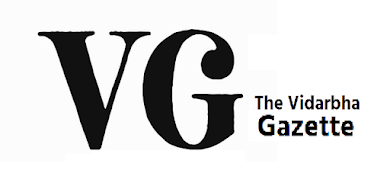Future Expectations from NFHS Reports
The NFHS provides valuable insights into women's health, nutrition, education and standard of living. It is important to note that the NFHS reports are not mere academic exercises but have policy implications because of the stewardship provided by the Ministry of Health and Family Welfare. Based on my work with women in rural communities of Maharashtra, I think the following issues should also be part of future NFHS reports.
1. Availability and accessibility of toilets in public and workplaces for women: the availability of hygienic, safe, universally accessible toilets with adequate water in public places and workplaces should be part of the next NFHS report. Women are stepping out of home in growing numbers and they suffer greatly due to lack of toilets. To begin with availability of toilets in government offices should be inquired into. Women in increasing numbers are visiting Panchayati Raj Institutions, Courts, Tehsildar and Collectorates, banks and police stations etc. Do all of these offices have proper toilets for women? Are these toilets open for the use of ordinary women or are they locked up for the exclusive use of the female employees? In the unorganised sector both in rural and urban areas, where vast numbers of women are employed through contractors, toilets are rarely provided. Even market areas do not have adequate number of toilets. Access to hygienic toilets in public places and workplaces is directly related to women's health, safety and dignity. The present NFHS report has information about household toilets, in the next report we hope they will carry information on toilets outside the household as well.
2. Hysterectomies : The present report gives us information on ceasarian section deliveries and it is in accordance with field experience that most of the c-section deliveries take place in private hospitals at an exorbitant cost. In the future reports we would like to see the NFHS report on hysterectomies. Field experience also shows that the number of hysterectomies have gone up phenomenally in the last decade especially in rural areas. There are extensive media reports about hysterectomies carried out on migrant labour women under repressive conditions - for example on female sugarcane workers of Marathwada region of Maharashtra. The NFHS could report on the conditions under which the hysterectomies are conducted in various districts and states of India. As per anecdotes a majority of the operations are conducted in the private hospitals and the family has to bear very high financial burdens.. The report could carry information about various reasons for hysterectomy, the financial costs involved, the after effects suffered by the women and whether follow-up care is available.
3. Calcium Requirements: Although the NFHS report gives a lot of information about women in general, there's nevertheless, an emphasis on the role of motherhood which leads to a focus on certain types of state interventions. For instance the importance of consumption of folic acid tablets for 100 or 180 days by pregnant women is given importance in the present report. In contrast, the requirement of Calcium and Vitamin D supplements by women above the age of 30 years does not get mentioned at all. Given that the NFHS - 5 has reported high levels of undernourishment and anaemia amongst the female population, we can presume that the calcium requirements will not be met through food intake alone. In fact NFHS could shed light on awareness about negative calcium balance amongst women and the impact of calcium deficiency on their health. We hope the calcium requirements of women will find place in future reports and the government will make positive interventions regarding calcium requirements of women in various stages of their lifecycle.
4. Menopause: Certain health requirements of older women like assistance during menopause should also be studied and reported on. Thousands of women go through difficult menopause symptoms like heavy and extended bleeding, bloatedness, insomnia, night sweats and hot or cold flushes. They also suffer emotional distress like anger, depression and anxiety. Unfortunately there's little support for women going through menopause and NFHS would make a an important contribution by flagging this issue.
- Paromita Goswami






0 Comments